#DietManagement
Explore tagged Tumblr posts
Text
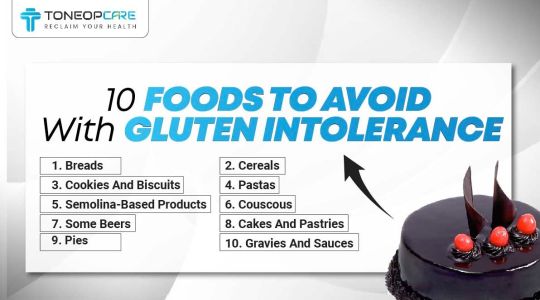
Gluten Intolerance : Foods to Avoid for Better Health
If you have gluten intolerance or celiac disease, avoiding certain foods is crucial for maintaining your health. Discover the top 10 foods to avoid if you have gluten intolerance in this blog. Learn how to manage your diet and protect your health by identifying hidden gluten sources. Stay informed and live gluten-free!
0 notes
Text
Maximizing Efficiency: Integrating Hospital Software with IoT Devices
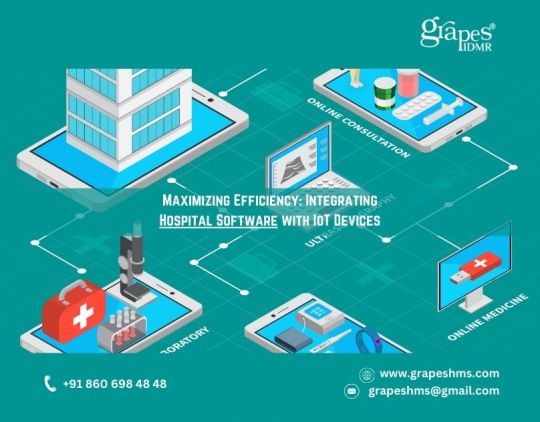
In today's rapidly evolving healthcare landscape, the integration of hospital software with Internet of Things (IoT) devices is revolutionizing patient care delivery, operational efficiency, and overall healthcare outcomes. By harnessing the power of IoT technology, healthcare organizations can maximize efficiency, streamline workflows, and enhance patient experiences. Let's explore the benefits and implications of integrating hospital software with IoT devices.
Real-Time Patient Monitoring:
Hospital software integrated with IoT devices enables real-time monitoring of patient vital signs, activities, and health metrics.
IoT sensors embedded in medical devices, wearables, and patient monitoring systems capture data continuously and transmit it directly to the hospital software platform.
Healthcare providers gain instant access to critical patient information, allowing for timely interventions, proactive care management, and improved clinical outcomes.
Enhanced Asset Management:
IoT-enabled hospital software facilitates the tracking and management of medical equipment, supplies, and assets within healthcare facilities.
RFID tags, sensors, and beacons embedded in equipment and inventory items enable automated asset tracking, location monitoring, and inventory management.
Healthcare organizations can optimize asset utilization, reduce equipment downtime, and minimize inventory stockouts by leveraging real-time data insights provided by IoT-integrated hospital software.
Improved Facility Operations:
Hospital software integrated with IoT devices streamlines facility operations and maintenance processes, leading to increased efficiency and cost savings.
IoT sensors deployed throughout healthcare facilities monitor environmental conditions, energy usage, and equipment performance in real-time.
Facility managers can proactively identify maintenance issues, optimize energy consumption, and ensure regulatory compliance by leveraging data-driven insights from IoT-enabled hospital software.
Remote Patient Care and Telemedicine:
IoT-integrated hospital software enables remote patient monitoring and telemedicine consultations, expanding access to healthcare services and improving patient engagement.
IoT-enabled wearable devices, home monitoring kits, and telehealth platforms facilitate virtual consultations, remote diagnostics, and medication adherence monitoring.
Healthcare providers can deliver personalized care plans, monitor patients' progress remotely, and intervene as needed, resulting in better health outcomes and reduced hospital readmissions.
Predictive Analytics and Preventive Care:
Hospital software integrated with IoT devices leverages data analytics and machine learning algorithms to predict and prevent adverse events and medical complications.
IoT sensors capture and analyze vast amounts of patient data, including physiological parameters, lifestyle factors, and environmental triggers.
Healthcare organizations can identify patterns, trends, and risk factors early on, enabling proactive interventions, personalized treatment plans, and preventive care strategies to improve patient health and wellness.
In conclusion, integrating hospital software with IoT devices offers tremendous potential for maximizing efficiency, improving patient care, and transforming healthcare delivery. By harnessing real-time data insights from IoT-enabled devices, healthcare organizations can enhance clinical workflows, optimize resource utilization, and deliver more personalized and proactive care to patients. Embracing IoT integration in hospital software is not just a technological advancement but a strategic imperative for driving innovation and achieving excellence in today's dynamic healthcare environment.
#HMS#hmssoftware#hospitalsoftware#HealthcareManagementsystem#Healthcare#HospitalManagementSystem#HospitalManagement#BSA#GrapesHMS#MIS#EMR#GrapesIDMR#Grapes#HealthcareManagementSystemsoftware#Software#SoftwareSolution#Doctor#PatientRegistration#IPDManagement#OPDManagement#IDMR#Labmanagement#NursingStation#Dietmanagement#MRDManagement#BloodBank#Linenmanagement#HRManagement#Pharmacy#Radiology
0 notes
Text
A Comprehensive Comparison of Leading HMS Software Solutions
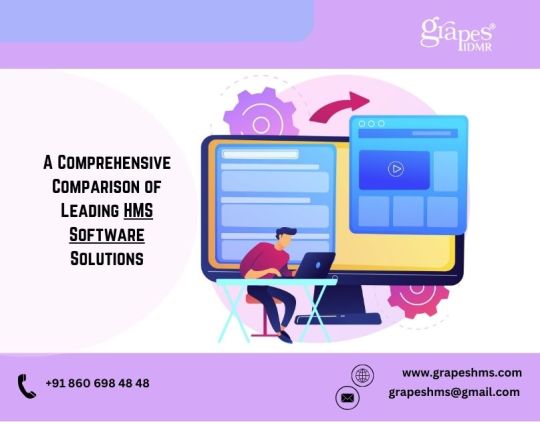
Choosing the best hospital management software (HMS software) for your healthcare organization is a crucial decision that requires careful evaluation of various factors. To assist you in this process, we have conducted a comprehensive comparison of leading HMS software solutions, highlighting their key features, functionalities, and benefits.
Epic Systems Corporation
Features: Epic offers a comprehensive suite of HMS software solutions, including electronic health records (EHR), patient scheduling, billing, and clinical decision support.
Functionality: Epic's software is highly customizable and scalable, catering to the needs of small clinics and large healthcare systems.
Benefits: Epic's HMS software is renowned for its interoperability, enabling seamless integration with other healthcare systems and facilitating collaborative care delivery.
Cerner Corporation:
Features: Cerner's HMS Software encompasses EHR, revenue cycle management, population health management, and telehealth capabilities.
Functionality: Cerner's software is known for its robust clinical decision support tools, data analytics capabilities, and patient engagement solutions.
Benefits: Cerner's HMS Software streamlines workflows, improves clinical outcomes, and enhances patient satisfaction through personalized care delivery and proactive population health management.
Allscripts Healthcare Solutions:
Features: Allscripts offers an integrated suite of HMS software solutions, including EHR, practice management, revenue cycle management, and patient engagement tools.
Functionality: Allscripts' software prioritizes interoperability, enabling seamless data exchange between disparate systems and enhancing care coordination across healthcare settings.
Benefits: Allscripts' HMS Software empowers healthcare organizations to deliver high-quality, patient-centered care, improve operational efficiency, and achieve better clinical and financial outcomes.
Meditech:
Features: Meditech provides a comprehensive suite of HMS software solutions, including EHR, patient registration, scheduling, billing, and clinical decision support.
Functionality: Meditech's software is designed to streamline clinical workflows, enhance patient safety, and optimize revenue cycle management through integrated, user-friendly interfaces.
Benefits: Meditech's HMS Software offers scalability, flexibility, and interoperability, enabling healthcare organizations to adapt to changing needs, improve care coordination, and achieve meaningful use of health IT.
NextGen Healthcare:
Features: NextGen offers a suite of HMS software solutions, including EHR, practice management, revenue cycle management, and population health management.
Functionality: NextGen's software prioritizes usability, interoperability, and data analytics, empowering healthcare organizations to drive better clinical and financial outcomes.
Benefits: NextGen's HMS Software enables healthcare organizations to optimize workflows, improve care quality, and enhance patient engagement through personalized, data-driven care delivery.
In conclusion, each of these leading HMS software solutions offers unique features, functionalities, and benefits to meet the diverse needs of healthcare organizations. When choosing the best HMS software for your business, consider factors such as interoperability, scalability, usability, and alignment with your organization's strategic objectives. By conducting a comprehensive comparison and selecting the HMS software solution that best fits your organization's needs, you can drive innovation, improve patient care, and achieve success in today's dynamic healthcare landscape.
#HMS#hmssoftware#hospitalsoftware#HealthcareManagementsystem#Healthcare#HospitalManagementSystem#HospitalManagement#BSA#GrapesHMS#MIS#EMR#GrapesIDMR#Grapes#HealthcareManagementSystemsoftware#Software#SoftwareSolution#Doctor#PatientRegistration#IPDManagement#OPDManagement#IDMR#Labmanagement#NursingStation#Dietmanagement#MRDManagement#BloodBank#Linenmanagement#HRManagement#Pharmacy#Radiology
0 notes
Link
🥱 Do you struggle with excessive daytime sleepiness? Idiopathic hypersomnia may be the culprit. This neurological disorder causes individuals to feel constantly tired, regardless of how much sleep they get. While there is no known cure, managing idiopathic hypersomnia with diet can be an effective way to alleviate symptoms. 🥗 A healthy diet can help regulate sleep patterns and improve overall energy levels. Foods rich in protein, fiber, and complex carbohydrates can provide sustained energy throughout the day. Avoiding processed foods, caffeine, and alcohol can also improve sleep quality and reduce daytime fatigue. 🍎 Additionally, incorporating certain foods into your diet may have specific benefits for managing idiopathic hypersomnia. For example, foods high in magnesium, such as spinach and almonds, can help regulate sleep patterns. Foods rich in vitamin B12, such as salmon and eggs, can also improve energy levels. Consult with a healthcare professional before making any major dietary changes.1. Understanding Idiopathic Hypersomnia: Causes and SymptomsIdiopathic Hypersomnia is a sleep disorder that causes excessive daytime sleepiness. Its cause is unknown, but it's thought to be a result of a problem with the brain's ability to regulate sleep. Symptoms include difficulty waking up, feeling groggy, and difficulty concentrating. 💤 It's important to note that Idiopathic Hypersomnia is different from other sleep disorders, such as sleep apnea, which can also cause excessive daytime sleepiness. It's also different from narcolepsy, which causes sudden and uncontrollable sleep attacks. 💤 The exact cause of Idiopathic Hypersomnia is unknown, but it's thought to be related to a problem with the brain's ability to regulate sleep. Some possible causes include genetics, hormonal imbalances, and abnormalities in the brain's neurotransmitters. 💤 Symptoms of Idiopathic Hypersomnia include excessive daytime sleepiness, difficulty waking up, feeling groggy, and difficulty concentrating. Other symptoms may include headaches, memory problems, and irritability. 💤 Treatment for Idiopathic Hypersomnia typically involves medications that help promote wakefulness during the day. These medications may include stimulants, such as modafinil or armodafinil. Lifestyle changes, such as maintaining a regular sleep schedule and avoiding caffeine and alcohol, may also be helpful. 💤 In conclusion, Idiopathic Hypersomnia is a sleep disorder that causes excessive daytime sleepiness. Its cause is unknown, but it's thought to be related to a problem with the brain's ability to regulate sleep. Symptoms include difficulty waking up, feeling groggy, and difficulty concentrating. Treatment involves medications and lifestyle changes.2. The Role of Diet in Managing Idiopathic HypersomniaProper diet can help manage idiopathic hypersomnia symptoms. Eat a balanced diet with whole grains, fruits, and vegetables. Avoid caffeine, alcohol, and sugar, which can worsen symptoms. Consider a low-carbohydrate, high-protein diet to improve wakefulness. Supplements like magnesium, vitamin D, and iron may also help. Magnesium can improve sleep quality. Vitamin D deficiency is common in IH patients and can cause fatigue. Iron deficiency can cause restless leg syndrome and worsen symptoms. Consult a doctor or registered dietitian to create a personalized plan. Individual needs and sensitivities vary. Don't make drastic changes without medical guidance. Track symptoms and adjust accordingly. Remember that diet is only one aspect of managing IH. Other strategies like medication and lifestyle changes may also be necessary. Stay positive and stay committed to finding what works for you. 💪 3. Foods to Avoid for Better Sleep Quality with Idiopathic HypersomniaAvoid these foods for better sleep quality with idiopathic hypersomnia: Caffeine-containing beverages (coffee, tea, soda) Alcohol Spicy foods Fatty and fried foods Sugary foods and drinks Processed and fast foods These foods can disrupt sleep patterns and worsen symptoms of idiopathic hypersomnia. Instead, opt for: Whole grains Fruits and vegetables Lean proteins Nuts and seeds Herbal teas Water Keeping a food diary can help identify triggers and improve sleep quality. Consult a doctor or nutritionist for personalized advice. Remember, a healthy diet is just one aspect of managing idiopathic hypersomnia. Prioritize good sleep hygiene, regular exercise, and stress management for optimal results. 😴💪🧘♀️4. Nutrients and Supplements that Can Help Manage Idiopathic HypersomniaThere are several : Magnesium: Helps regulate sleep and relax muscles. Take 200-400mg before bed. Vitamin B12: Helps with energy levels. Take 500-1000mcg daily. Iron: Helps with fatigue. Take 18mg daily. Melatonin: Helps regulate sleep. Take 1-5mg before bed. Ginkgo Biloba: Helps with cognitive function. Take 120-240mg daily. It's important to talk to your doctor before taking any supplements, especially if you're on medication. Other lifestyle changes that can help manage idiopathic hypersomnia include: Establishing a regular sleep schedule Creating a relaxing bedtime routine Avoiding caffeine and alcohol before bed Exercising regularly Reducing stress Remember, managing idiopathic hypersomnia is a journey. It may take time to find what works best for you. Don't give up! 💪5. Meal Planning Tips for Idiopathic Hypersomnia PatientsProper meal planning can help manage symptoms of idiopathic hypersomnia. Here are some tips: Include complex carbs, protein, and healthy fats in every meal. Avoid processed foods and sugary drinks. Drink plenty of water throughout the day. Limit caffeine intake, especially in the afternoon. Consider a low-carb or ketogenic diet to improve energy levels. Meal prep can also be helpful: Cook meals in advance and freeze them for later use. Use a slow cooker to make meals while you sleep. Pack healthy snacks to avoid impulse eating. Keep a food diary to track how different foods affect your symptoms. Consult with a registered dietitian for personalized advice. Don't forget the importance of breakfast: Eat a balanced breakfast within an hour of waking up. Include protein, whole grains, and fruit or vegetables. Avoid high-sugar cereals and pastries. Consider meal replacement shakes for convenience. Try a breakfast meal prep to save time in the morning. Remember to listen to your body: Pay attention to how different foods affect your energy levels. Don't skip meals or restrict calories too much. Be mindful of portion sizes. Consider supplements like B vitamins or iron if deficient. Consult with a healthcare provider before making any major dietary changes. With proper meal planning, idiopathic hypersomnia patients can improve their energy levels and manage their symptoms. 🍎🥦🥑6. Lifestyle Changes to Combine with a Hypersomnia-Friendly Diet Exercise regularly: Exercise can improve sleep quality and reduce daytime sleepiness. Try low-impact activities like yoga or walking. Establish a sleep routine: Go to bed and wake up at the same time every day, even on weekends. Avoid caffeine and alcohol: Both can disrupt sleep patterns and worsen symptoms of hypersomnia. Reduce stress: Stress can exacerbate symptoms of hypersomnia. Try relaxation techniques like meditation or deep breathing. Get natural sunlight: Exposure to natural light can help regulate sleep-wake cycles and improve mood. Limit screen time: Blue light from electronic devices can interfere with sleep. Avoid screens for at least an hour before bed. 7. Consulting with a Nutritionist for Optimal Idiopathic Hypersomnia ManagementConsulting with a nutritionist can help manage idiopathic hypersomnia. 🍎 A nutritionist can create a personalized diet plan to improve energy levels. 🥦 Eating a balanced diet with whole foods can reduce inflammation and promote better sleep. 🥑 Nutrient deficiencies can worsen symptoms, but a nutritionist can identify and address them. 🍓 Avoiding processed foods, sugar, and caffeine can improve sleep quality. 🍌 A nutritionist can recommend supplements, like magnesium and melatonin, to aid sleep. 🥕 Maintaining a healthy weight can reduce symptoms, and a nutritionist can help achieve this. 🍇 A nutritionist can also address any food sensitivities or allergies that may worsen symptoms. 🥬 Overall, consulting with a nutritionist can improve sleep and quality of life for those with idiopathic hypersomnia. In conclusion, managing idiopathic hypersomnia with diet can be a helpful approach. Incorporating nutrient-dense foods, such as fruits and vegetables, can provide sustained energy throughout the day. Avoiding processed foods and sugary snacks can prevent blood sugar crashes and fatigue. It's important to consult with a healthcare professional before making any significant dietary changes. Additionally, lifestyle modifications, such as regular exercise and sleep hygiene, can also improve symptoms. With the right combination of diet and lifestyle changes, those with idiopathic hypersomnia can experience improved energy levels and quality of life. 😴🍎🥦 https://fastdiet.net/managing-idiopathic-hypersomnia-with-diet/?_unique_id=649754907c06a
#Uncategorised#dietmanagement#healthyeating#idiopathichypersomnia#lifestylechanges#sleepdisorder#aiomatic_0
0 notes
Text
youtube
Diet in Obesity Management by Dr. Aasim Maldar
Watch Dr. Aasim Maldar, Consultant - Endocrinology and Diabetology at P. D. Hinduja Hospital give helpful tips on following a diet to control obesity. To book an appointment with Dr. Aasim Maldar.Book your appointment Now!
https://www.hindujahospital.com/doctors/aasim-maldar
0 notes
Text
The Role of Diet in Managing Psoriasis Severity
The Role of Diet in Managing Psoriasis Severity @neosciencehub #Psoriasis #DietManagement #Healthcare #Sciencenews #neosciencehub
Psoriasis is a chronic, inflammatory skin condition that affects millions worldwide. Characterized by red, scaly patches on the skin, the condition is often linked to dysfunctions within the immune system. Despite various treatments available, managing psoriasis effectively continues to be a challenge for many individuals. Recent research indicates that dietary choices may play a significant role…
0 notes
Text
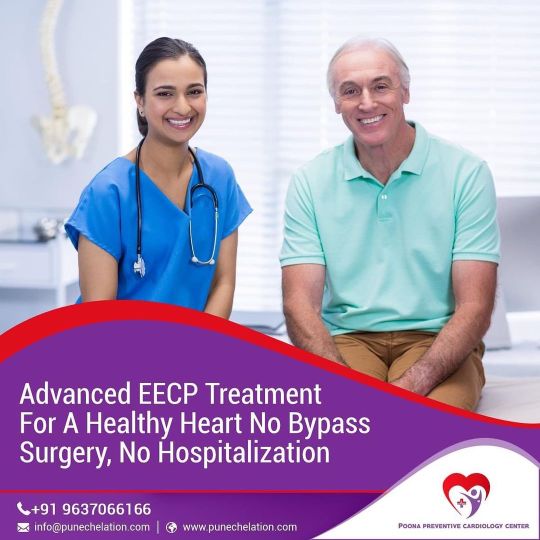
EECP Therapy: There is a progressed non-invasive therapy to make you and your heart feel much improved
#EECP#Preventivecardiology#Dietmanagement#Heartfailoure#Heartblock#Avoidsurgery
#alternative to bypass surgery#eecp treatment in pune#poona preventive#esmr treatment in pune#eecp approved treatment
0 notes
Text
0 notes
Text
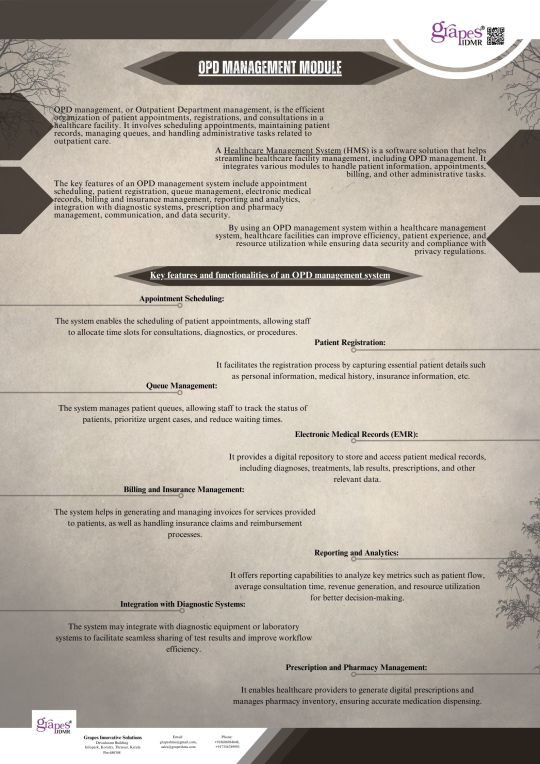
Outpatient department management, also known as outpatient Department management, is the effective processing and coordination of patient appointments, registration, and medical services in a healthcare facility's outpatient department. It entails expediting the entire patient journey, from registration to consultation, diagnostics, and treatment.
Healthcare management systems, which are comprehensive software solutions designed to support various administrative and clinical functions within a healthcare organization, include OPD management as a critical component. Technology is used in these systems to automate and optimize patient data administration, appointments, billing, inventories, and other elements of healthcare delivery.
#hms #healthcare #healthcaremanagement #healthcaremanagementsystem #hospitalmanagement #hmssoftware #hospitalmanagementsystem #Grapes #GrapesIDMR #Grapeshms #doctor #nurse #LabManagement #IPDManagement #BSA #MIS #EMR #IDMR #Pharmacy #Bloodbank #Pharmacy #OPDManagement #SoftwareSolution #Dietmanagement
#HealthcareManagementSystem
#GrapesIDMR
#HealthcareAutomation
#HospitalManagement
#EMRSoftware
#DigitalHealthcare
#MedicalInnovation
#HealthcareTechnology
#PatientCare
#HealthcareData
#InnovativeSolutions
#MedicalImageData
#HealthcareEfficiency
#HealthTech
#HealthcareRevolution
#AdvancedEMR
#HealthcareInnovation
#HospitalOperations
#HealthcareIT
#UserFriendlyInterface
#healthcare#hms#hospital management system#management#software#hospital#bsa#healthcare management system#health#idmr
0 notes
Photo

Want to loose some weight? Add more of fat-burning foods in your diet! #weight #weightloss #weightlosstip #weightmanagement #food #weightlossdfood #eatinghabit #dietplan #healthydiet #weightlossdiet #dietmanagement #metabolism #diabetes #prediabetes #obesity #disease #healthapp #bloodsugar #cvd ##healthtip (at Gurgaon,Haryana) https://www.instagram.com/p/B_0jNp3pe_K/?igshid=54gag6a9znby
#weight#weightloss#weightlosstip#weightmanagement#food#weightlossdfood#eatinghabit#dietplan#healthydiet#weightlossdiet#dietmanagement#metabolism#diabetes#prediabetes#obesity#disease#healthapp#bloodsugar#cvd#healthtip
0 notes
Text
Why Cloud Solutions are the Future of Hospital Software
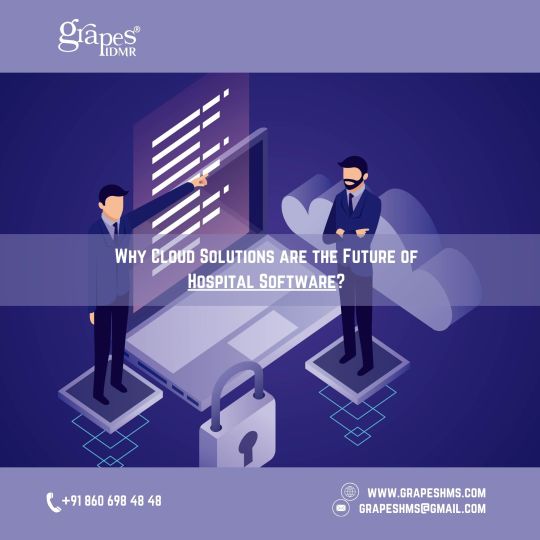
In today's rapidly evolving healthcare landscape, the adoption of cloud-based solutions is reshaping the way hospital software is deployed, managed, and utilized. Cloud solutions offer numerous advantages over traditional on-premises software, making them the future of hospital software. Let's explore why cloud solutions are leading the way in revolutionizing hospital software and driving innovation in the healthcare industry.
Enhanced Accessibility and Flexibility: Cloud-based hospital software provides healthcare organizations with unparalleled accessibility and flexibility. Unlike traditional on-premises solutions, which are limited to specific physical locations or devices, cloud solutions can be accessed from anywhere with an internet connection. This enables healthcare professionals to access patient information, collaborate with colleagues, and perform critical tasks from the hospital, clinic, or even remotely, improving workflow efficiency and responsiveness to patient needs.
Scalability and Agility: Cloud solutions offer unmatched scalability and agility, allowing healthcare organizations to scale their software infrastructure up or down based on changing needs and demands. Whether expanding services, adding new users, or integrating with additional systems, cloud-based hospital software can adapt quickly and seamlessly to accommodate growth and evolution. This scalability enables healthcare organizations to stay agile, responsive, and competitive in a dynamic healthcare environment without the constraints of traditional hardware limitations.
Cost-Effectiveness and Efficiency: Cloud solutions offer significant cost savings and operational efficiencies compared to traditional on-premises software deployments. With cloud-based hospital software, healthcare organizations can avoid hefty upfront investments in hardware infrastructure, software licenses, and IT personnel required for on-premises deployments. Instead, they can benefit from a pay-as-you-go subscription model, where they only pay for the resources and services they use, eliminating unnecessary expenses and reducing total cost of ownership over time.
Improved Security and Compliance: Contrary to common misconceptions, cloud solutions offer robust security measures and compliance capabilities that meet or exceed those of traditional on-premises deployments. Leading cloud providers invest heavily in state-of-the-art security technologies, data encryption, access controls, and compliance certifications to protect sensitive patient information and ensure regulatory compliance. By leveraging the expertise and resources of cloud providers, healthcare organizations can enhance data security, reduce risk, and maintain compliance with industry regulations such as HIPAA and GDPR.
Seamless Updates and Maintenance: Cloud-based hospital software eliminates the burden of manual updates, patches, and maintenance tasks typically associated with on-premises deployments. Cloud providers handle software updates and maintenance automatically, ensuring that healthcare organizations always have access to the latest features, enhancements, and security patches without disrupting operations. This seamless update process minimizes downtime, enhances system reliability, and enables healthcare organizations to focus on delivering quality patient care rather than managing IT infrastructure.
In conclusion, cloud solutions are the future of hospital software, offering unparalleled accessibility, scalability, cost-effectiveness, security, and efficiency compared to traditional on-premises deployments. By embracing cloud-based hospital software, healthcare organizations can unlock new opportunities for innovation, collaboration, and growth while enhancing patient care delivery and driving operational excellence in the digital age. Embracing cloud solutions is not just a technological upgrade but a strategic imperative for healthcare organizations looking to thrive in an increasingly interconnected and data-driven healthcare landscape.
#HMS#hmssoftware#hospitalsoftware#HealthcareManagementsystem#Healthcare#HospitalManagementSystem#HospitalManagement#BSA#GrapesHMS#MIS#EMR#GrapesIDMR#Grapes#HealthcareManagementSystemsoftware#Software#SoftwareSolution#Doctor#PatientRegistration#IPDManagement#OPDManagement#IDMR#Labmanagement#NursingStation#Dietmanagement#MRDManagement#BloodBank#Linenmanagement#HRManagement#Pharmacy#Radiology
0 notes
Text
How to Choose the Best HMS Software for Your Business
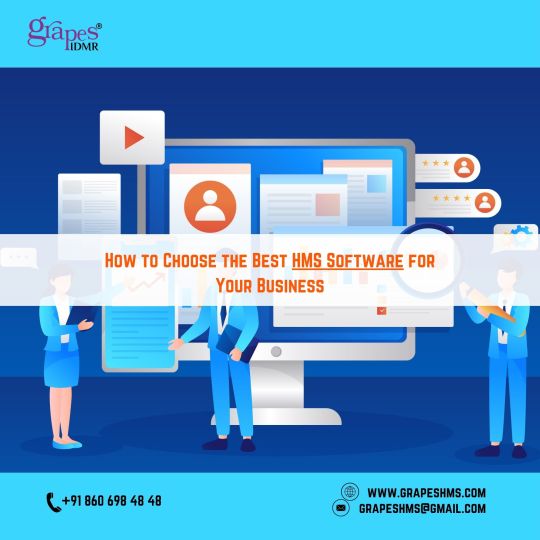
Selecting the right hospital management software (HMS software) is a critical decision for healthcare organizations, as it directly impacts patient care, operational efficiency, and overall success. With numerous options available on the market, choosing the best HMS software can be a daunting task. Here are some key factors to consider when evaluating and selecting the best HMS software for your business:
Define your requirements: Before exploring HMS software options, it's essential to clearly define your organization's requirements, goals, and priorities. Consider factors such as the size of your organization, specialty areas, workflow complexities, regulatory compliance needs, and integration requirements with existing systems. Identifying specific features and functionalities that are essential for your business will help narrow down your options and ensure that the chosen HMS software aligns with your organization's objectives.
Assess Ease of Use and User Experience: The best HMS software should be intuitive, user-friendly, and easy to navigate for healthcare professionals and staff members. Look for software solutions that offer a modern interface, customizable dashboards, and workflow automation features that streamline tasks and reduce manual effort. Consider conducting demos or trials of potential HMS software solutions to evaluate the user experience firsthand and assess how well the software aligns with your organization's workflow and user preferences.
Evaluate integration capabilities: Integration with existing systems and technologies is crucial for seamless data exchange, interoperability, and workflow continuity. Evaluate the integration capabilities of HMS software solutions and ensure compatibility with your organization's electronic health records (EHR) systems, laboratory information systems (LIS), billing platforms, and other third-party applications. Choose HMS software that supports industry-standard protocols such as HL7 and FHIR and offers flexible integration options to meet your organization's unique needs.
Consider scalability and flexibility. As your organization grows and evolves, your HMS software should be able to scale and adapt to changing needs and requirements. Assess the scalability and flexibility of potential HMS software solutions to accommodate future expansion, additional users, and new functionalities. Look for software vendors that offer modular solutions, customizable features, and flexible licensing options that can be tailored to your organization's size and growth trajectory.
Prioritize data security and compliance: Data security and regulatory compliance are paramount in healthcare, and HMS software must adhere to stringent standards to protect patient information and ensure compliance with regulations such as HIPAA, GDPR, and HITECH. Evaluate the security measures and compliance features of HMS Software solutions, including data encryption, access controls, audit trails, and regular security updates. Choose HMS software vendors with a proven track record of prioritizing data security and compliance in their software development and implementation processes.
Assess vendor reputation and support: Selecting a reputable HMS software vendor with a track record of success and a strong commitment to customer support is essential for a successful implementation and long-term partnership. Research vendor credentials, customer reviews, and case studies to gauge their reputation and reliability. Additionally, inquire about the level of customer support, training resources, and ongoing maintenance and support services offered by the vendor to ensure that your organization receives the necessary assistance and guidance throughout the implementation process and beyond.
In conclusion, choosing the best HMS software for your business requires careful consideration of your organization's requirements, user experience, integration capabilities, scalability, data security, vendor reputation, and support services. By assessing these key factors and conducting thorough research and evaluation, you can select an HMS software solution that aligns with your organization's objectives, enhances patient care delivery, and drives operational efficiency in the rapidly evolving healthcare landscape.
#HMS#hmssoftware#hospitalsoftware#HealthcareManagementsystem#Healthcare#HospitalManagementSystem#HospitalManagement#BSA#GrapesHMS#MIS#EMR#GrapesIDMR#Grapes#HealthcareManagementSystemsoftware#Software#SoftwareSolution#Doctor#PatientRegistration#IPDManagement#OPDManagement#IDMR#Labmanagement#NursingStation#Dietmanagement#MRDManagement#BloodBank#Linenmanagement#HRManagement#Pharmacy#Radiology
0 notes
Photo

YOU Be the Behavior Consultant - Hidden Gem Training induced binge eating behavior. How it happens and potential welfare implications. Since I am unable to give you a livestream today, I really wanted to share with you this hidden gem from last year. I just re-listened to this material, and it reminded me how important it is to carefully describe behaviors and examine the conditions that lead to future responses. The specific behavior discussed in this YOU be the Behavior Consultant has had many trainers confused for a long time. So much so, it has been labeled “psychologic” and a “paradox.” However, upon closer inspection it is very logical, and observable reinforced behavior. It is also a behavior that according to the study discussed in the replay is a welfare concern. If you haven’t watched this episode, I highly recommend it. If you have, it is definitely worth revisiting. https://www.facebook.com/GoodBirdInc/videos/10158075025422781 #livestream #animaltraining #behaviorproblem #barbaraheidenreich #behaviorconsultant #zooanimaltraining #exoticanimaltraining #zookeeper #professionaldevelopment #psychologicalhunger #foodparadox #weightmanagement #bingeeatingdisorder #bingeeating #birdtraining #birdshows #dogtraining #motivation #establishingoperations #foodmanagement #dietmanagement #creatingmotiivation #motivationinanimaltraining #animalwelfare https://www.instagram.com/p/CVunr2dlH-o/?utm_medium=tumblr
#livestream#animaltraining#behaviorproblem#barbaraheidenreich#behaviorconsultant#zooanimaltraining#exoticanimaltraining#zookeeper#professionaldevelopment#psychologicalhunger#foodparadox#weightmanagement#bingeeatingdisorder#bingeeating#birdtraining#birdshows#dogtraining#motivation#establishingoperations#foodmanagement#dietmanagement#creatingmotiivation#motivationinanimaltraining#animalwelfare
0 notes
Text
Patient Registration Module
Patient registration is an essential component of a hospital's Healthcare Management System. A healthcare management system is the overall framework and technology that a healthcare organization uses to streamline and coordinate various administrative and clinical tasks. It includes a variety of software, tools, and processes aimed at increasing operational efficiency, improving patient care, and facilitating effective communication and data management.
Patient registration is critical in a Healthcare Management System because it captures critical patient information and integrates it into the larger system. Here's how patient registration works in conjunction with a healthcare management system:
1. Patient registration ensures that accurate and up-to-date patient information is collected and stored in a centralized database. This information becomes a part of the healthcare management system, making it available to authorized healthcare professionals when needed. Centralization promotes data integrity, eliminates duplication, and improves data accuracy throughout the organization.
2. Appointment scheduling: Patient registration makes appointment scheduling easier by collecting patient information and matching it with available healthcare providers and resources. This integration simplifies appointment scheduling, reduces wait times, and optimizes resource utilization.
3. Billing and insurance management: During patient registration, insurance information, billing preferences, and financial information are collected, which is necessary for generating accurate bills and managing insurance claims. Integration with the healthcare management system streamlines billing and insurance processes, reducing errors and improving financial transparency.
4. Care coordination: Patient registration contributes to the healthcare management system's care coordination efforts. Healthcare providers can make informed decisions and coordinate care across departments by capturing relevant medical history, allergies, and existing conditions. This integration enables healthcare professionals involved in the patient's treatment to communicate and collaborate in real-time.
5. Patient safety and quality improvement: Accurate patient registration data helps with patient safety and quality improvement initiatives within the healthcare management system. Access to comprehensive patient information, including allergies and medications, allows healthcare providers to make informed decisions, prevent adverse events, and improve the overall quality of care.
In summary, patient registration is an essential component of a hospital's healthcare management system. It improves patient safety and quality improvement initiatives by facilitating the collection and integration of patient data, enabling efficient appointment scheduling, billing, and insurance management, and supporting care coordination.
#hms #healthcare #healthcaremanagement #healthcaremanagementsystem #hospitalmanagement #hmssoftware #hospitalmanagementsystem #Grapes #GrapesIDMR #Grapeshms #doctor #nurse #LabManagement #IPDManagement #BSA #MIS #EMR #IDMR #Pharmacy #Bloodbank #Pharmacy #OPDManagement #SoftwareSolution #Dietmanagement #EMRSoftware #DigitalHealthcare #MedicalInnovation #HealthcareTechnology #PatientCare #HealthcareData #InnovativeSolutions #MedicalImageData #HealthcareEfficiency #HealthTech #HealthcareRevolution #AdvancedEMR #HealthcareInnovation #HospitalOperations #HealthcareIT #UserFriendlyInterface #HealthcareManagementSystem #GrapesIDMR #HealthcareAutomation #HospitalManagement
#healthcare#hms#healthcare management system#hospital management system#health#hospital#management#software#bsa#idmr#healthcareinnovation#GrapesIDMR
0 notes
Video
instagram
170411 Yuna Instagram Update
yn_s_1230: @regramkr from @allets_official 우리 #유나 는 뭘 먹고👄 그렇게 예뻐요? 그녀의 #성수기 & #비수기 #식단관리 비밀은?🍏🍠🍳 🔝알렛츠에서 만나용~ #AOA유나 @yn_s_1230 #allets #요리했유나 #다이어트식단 #걸그룹식단 #걸그룹 #헬스타그램 @superbom28
[TRANS] @regramkr from @allets_official Our #Yuna, what are you eating👄 so prettily? What is the secret to #peakseason & #lowseason #dietmanagement? 🍏🍠🍳 🔝 See you at Allets~ #AOAYuna @yn_s_1230 #allets #CookingYuna #DietMeal #GirlGroupMeal #GirlGroup #Healthstagram @superbom28
7 notes
·
View notes
Photo
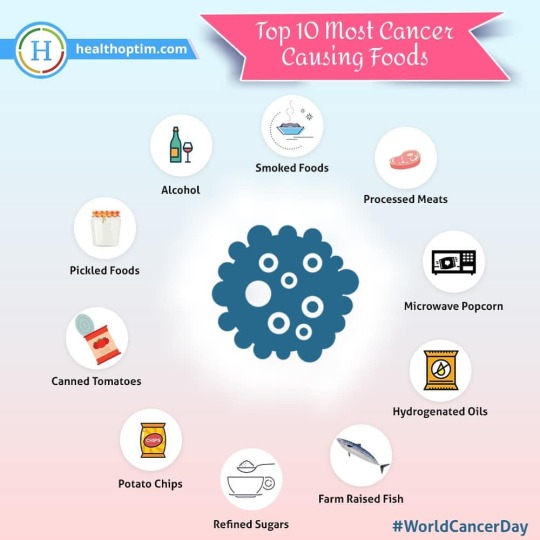
The foods we eat can affect our risk of developing certain types of cancer. High-energy and high-fat diets can lead to obesity and are generally thought to increase the risk of some cancers. #WorldCancerDay #TogetherWeCan #cancer #cancerrisk #obesity #highenergy #highfat #ageing #canceragent #dietmanagement #diet #healthydiet #healthy #healthcare #lifestyle #lifestylediseases (at SAS Tower) https://www.instagram.com/p/B8GWxOnJTA6/?igshid=1cz14uud6xedi
#worldcancerday#togetherwecan#cancer#cancerrisk#obesity#highenergy#highfat#ageing#canceragent#dietmanagement#diet#healthydiet#healthy#healthcare#lifestyle#lifestylediseases
0 notes